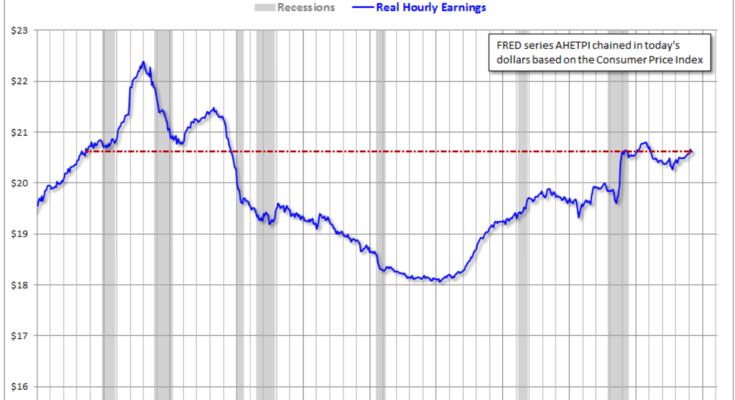Whatever Happened to Wages?
When we left off on Friday, we promised to take up an important theme on the morrow. The morrow is here. True to our word, we will do so. The subject is wages. And we are digging in. On the surface, we lament the lack of any forward progress in US hourly compensation over the last half century.
Deeper down, in the clay and subsoil, we wonder how it is possible that the world’s richest and most technologically advanced economy ever, operating during a 50-year period that included the invention of the Internet … the triumph of capitalism in China and Russia … and a landing on the moon – that is the most bountiful half-century in human history – failed to make its most important component parts better off.
And at the bedrock level, we find the explanation: Fed policies are dangerous claptrap.

Real hourly wages since 1965 via Mish / Doug Short – click to enlarge.
Â
Quackery and Incompetence
On Friday, we described and illustrated the quackery and incompetence behind the Fed’s economic forecasts. Clearly, it never knows what is coming. Today, we show what its policies have wrought.
Let’s begin with a conclusion: Thomas Piketty is wrong about the way the world works. He sees the working man… and the investing man… competing for the material rewards of a capitalist society.
As an old-fashioned lefty, he presumes the man with overalls will always get the short end of the stick. The working man has only the time on his hands and the sweat on his brow to offer his employer. Generation after generation, he has no more time or sweat than he had in the time of Jacob and Ishmael.
Capital, on the other hand, compounds… year after year… growing larger by the day… with more and larger factories… darker and more satanic mills. Piketty even gives a number – on page 356 of his tome – for the rate at which capital annually compounds: 4.5%.

